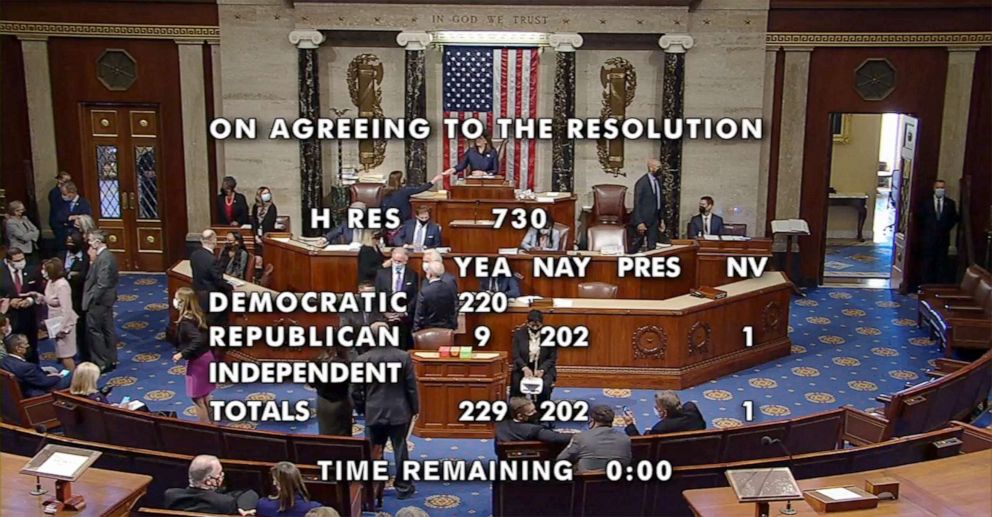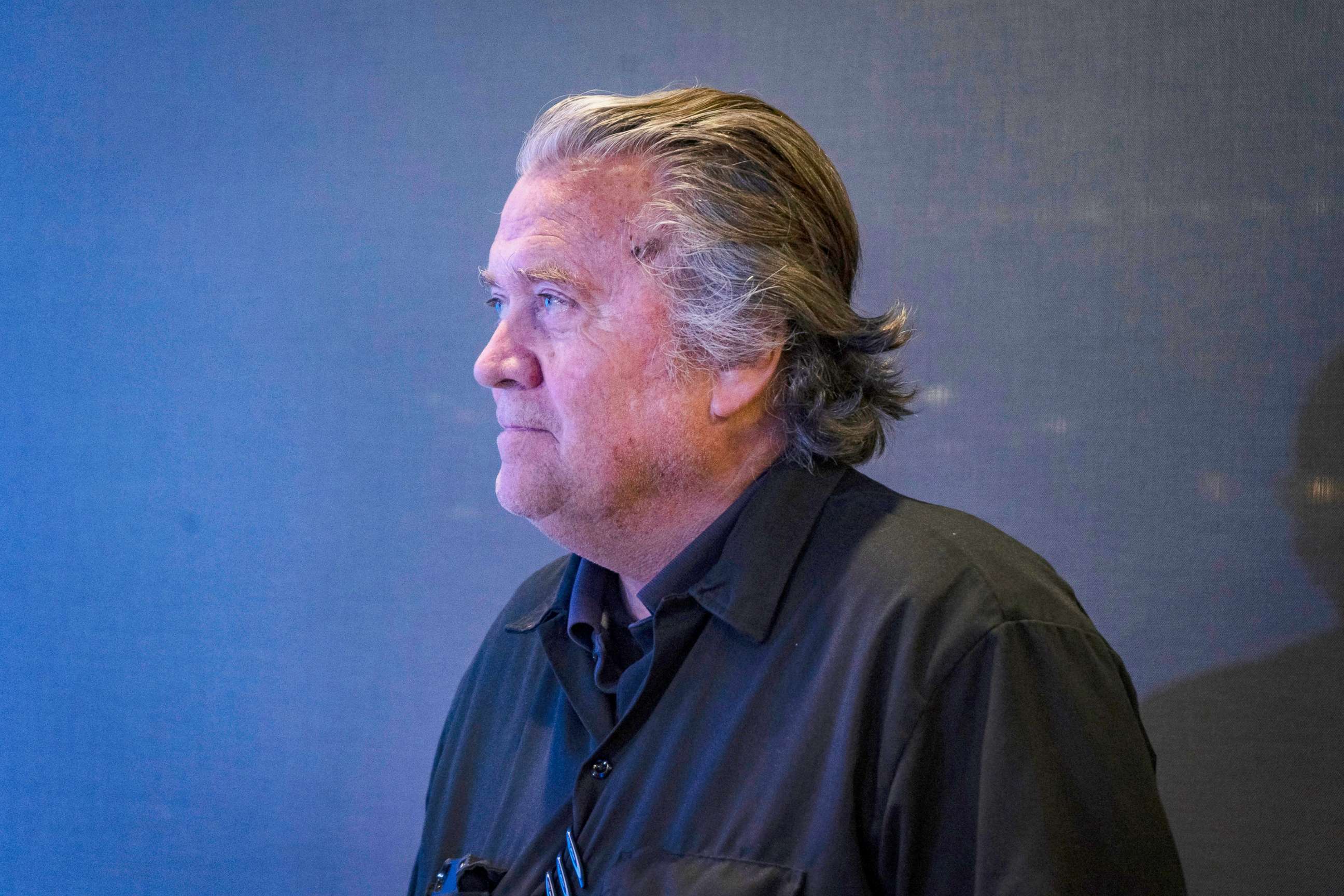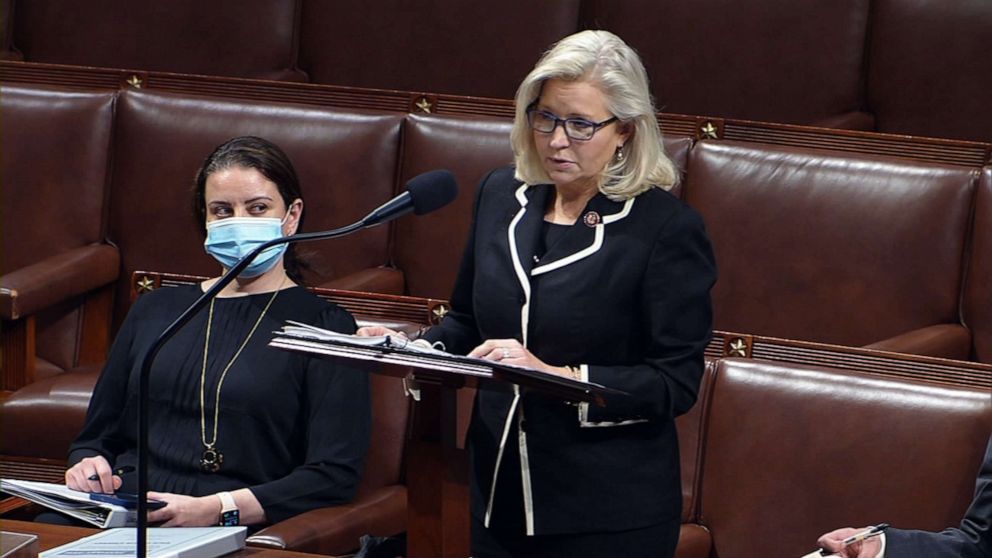House votes to hold Steve Bannon in criminal contempt
The House of Representatives voted to hold Trump administration adviser Steve Bannon in contempt of Congress on Thursday for defying a congressional subpoena by the Jan. 6 select committee investigating the attack on the Capitol.
The vote fell largely along party lines: 229-202, with nine Republicans voting with Democrats.
Select committee Chair Bennie Thompson, D-Miss., said in debate ahead of the vote that allowing Bannon to ignore their subpoena would set a dangerous precedent.
"To my colleagues who choose to vote against enforcing the subpoena, you are saying to all future men and women who are called before this body that they can ignore a subpoena from Congress without consequence," he said. "The consequences of that vote won't be limited to this investigation and this subpoena alone. Your vote will be given serious long-lasting damage to Congress. And that, in turn, will do serious damage to our country which we all love dearly."

House Speaker Nancy Pelosi signed the resolution shortly after the House vote and tweeted out a photo.
Her office told ABC News the referral has now been formally transmitted to the office of the U.S. Attorney for the District of Columbia. The Justice Department will now decide whether to prosecute Bannon.
The select committee, a nine-member panel, voted unanimously Tuesday evening to send a report recommending contempt charges to the full House.
GOP Reps. Liz Cheney, R-Wyo., and Adam Kinzinger, R-Ill, the two Republicans who sit on the committee, voted with all Democrats to advance to debate on Thursday. House GOP leaders had whipped their members to vote "no."
But Democrats argued on the House floor that lawmakers have a Constitutional responsibility of oversight.
"Mr. Bannon's willful disregard for the select committee's subpoena demonstrates his utter contempt for the American people's right to know how the attacks on January 6 came about," Kinzinger said. "His own words strongly suggest that the actions of the mob that stormed the Capitol and invaded this very chamber came as no surprise to him. He and a few others, were by all accounts, involved in planning that day's events and encouraged by those who attacked the Capitol, our officers and our democracy."

"I have no doubt that Mr. Bannon's scorn for our subpoena is real. But no one, and I repeat, no one is above the law," Kinzinger said. "And we need to hear from him."
Cheney, also speaking with Democrats in favor of the bill, said Bannon's statements on his podcast on Jan. 5, the day before the attack, were "shocking and indefensible."
"He said all hell is going to break loose. He said, 'We are coming in right over the target,'" she said. "There are people in this chamber right now who were evacuated with me and the rest of us that day and during the attack. People who seem to have forgotten the danger of the moment. The assault on our Constitution, the assault on our Congress. People who you will hear argue that there is simply no legislative purpose for this committee, this legislation and this subpoena," she said.
"There is no doubt that Mr. Bannon knows far more than what he said," she continued. "There is no doubt that all hell did broke loose. Just ask the scores of brave police officers who were injured that day protecting us. The American people deserve to hear his testimony."
Including Cheney and Kinzinger, nine Republicans voted with Democrats to hold Bannon in contempt: Reps. Anthony Gonzalez, Peter Meijer, Fred Upton, Nancy Mace, John Katko, Brian Fitzpatrick and Jaime Herrera Beutler. Rep. Mike Simpson had voted "yes" but changed it to "no."
Two of the nine Republicans who voted with Democrats -- Fitzpatrick and Mace -- did not vote to impeach former President Donald Trump earlier this year. And several Republicans who did vote to impeach Trump did not back the effort to hold Bannon in contempt.
Mace, who spoke to reporters outside the Capitol after her vote, said she wanted to uphold the subpoena power of Congress, given that Republicans could retake the chamber next year.

House Minority Leader Kevin McCarthy, R-Calif., earlier Thursday argued that the Jan. 6 select committee's subpoena for Bannon's testimony was "invalid" because Republicans aren't serving on the panel and claimed Democrats are using the panel to target their political opponents.
However, Republicans decided not to sit on the panel after House Speaker Nancy Pelosi refused to seat two of five members recommended by McCarthy for making baseless claims about the validity of 2020 election. That came after Republicans killed an effort in May to establish an independent commission of members selected by both parties to investigate the Jan. 6 attack.
"Issuing an invalid subpoena weakens our power, not voting against it," McCarthy said, defending Republicans' plans to overwhelmingly vote against holding Bannon in contempt of Congress this evening. "[Bannon] has a right to go to court to see if he has executive privilege or not. I don't know if he has it or not, but neither does the committee."

His message follows a memo circulated to Republican lawmakers on Wednesday, in which House GOP leaders argued that the Jan. 6 select committee that subpoenaed Bannon for records and testimony is "pursuing a partisan agenda to politicize the Jan. 6 attack" instead of "conducting a good faith investigation."
Asked about the importance of GOP support on the effort, Pelosi said at her weekly press conference that it's Republicans' duty to vote to hold Bannon in contempt.
"Because they take an oath to protect and defend the Constitution of the United States," Pelosi told reporters.
"The genius of our Constitution and our founders was the separation of powers checks and balances, if in fact you went to negate the ability of one check of another branch of government over another, then you are undermining the constitution," she said.
"This goes beyond Bannon in terms of its importance. And you would think that if they take an oath to protect and defend the Constitution, they would vote for the system of checks and balances," she said.
It's been 38 years since the Justice Department pursued contempt of Congress charges: Environmental Protection Agency official Rita Lavelle was indicted in 1983. A jury eventually found Lavelle not guilty.
The Democrat-led House held former Attorney General Bill Barr and Commerce Secretary Wilbur Ross in contempt of Congress in 2019 for defying subpoenas for records, but the Trump Justice Department did not take up the case.
Bannon could face up to a year in prison and up to a $100,000 fine if the Justic Department charges him and he is eventually found guilty.
ABC News' Sarah Donaldson contributed to this report.




